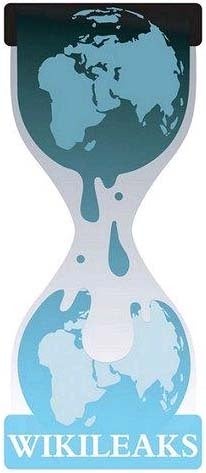

With all of the hype and furor over WikiLeaks exposing sensitive government documents, it is easy to jump to the conclusion that WikiLeaks is bad, and is obviously doing something wrong. The reality, though, is that WikiLeaks is just a symptom, not the cause of the problem, and that silencing WikiLeaks is not really a solution.
The issue isn’t really that WikiLeaks published confidential documents and communications–although it would certainly be preferable if WikiLeaks didn’t do that. But, the real problem is the fact that WikiLeaks was able to acquire the documents and communications. The bottom line is that if WikiLeaks can obtain this information, then so can others.

I got some insight from Oliver Lavery, Director of Research and Development for nCircle. Lavery says “Both the government and the press have taken a ‘shoot the messenger’ mindset about this. The problem isn’t WikiLeaks at all, and shutting them down is pointless. Once the information had been ex-filtrated Manning [the soldier allegedly responsible for leaking sensitive government communications] could have uploaded it to BitTorrent, or any number of other online forums.”
WikiLeaks is a scapegoat in this instance, and serves as a convenient distraction from the real issue: the fact that there is a systemic failure by agencies of the United States government to secure and protect classified information. If the data is, in fact, confidential then it should be encrypted, and the ability to store it on removable media should be blocked.
Lavery explains, “The government basically has the same problem as the RIAA [Recording Industry Association of America]. The risk to information security increases in proportion to the number of people that have access to it. The real scandal here is that the government and the media have created a tempest in a teacup instead of grappling with the far more difficult problems, including the intrinsic tension between openness and security.”
Lavery also added that there is another risk potentially damaging to diplomatic relations. Someone with less than pure motives could inject intentionally false information into the information stream along with the legitimate documents and communications. The breakdown in preserving the integrity of the sensitive information opens it up to possible exploitation that could cause an foreign policy crisis.
The backlash against WikiLeaks is similar to the reaction when a security researcher discloses a critical software vulnerability. The anger tends to be directed at the one who identifies and discloses the flaw rather than at the software vendor for creating the flaw, and there is a misguided belief that if the vulnerability is kept secret everything will be fine.
But, just as hiding the vulnerability from paying software customers doesn’t prevent malware developers from discovering and exploiting it, squashing Wikileaks disclosures to prevent exposure of sensitive information would not prevent terrorist organizations or enemy states from obtaining that same data and using it for more nefarious purposes.
The problem is not isolated to government agencies either. WikiLeaks has already stated that it has plans to expose damaging information about a major United States bank, and there is no reason to believe the same damaging exposure couldn’t occur at virtually any business.
The bottom line is this: WikiLeaks can learn a thing or two about responsible disclosure and being discrete, but it won’t change the fact that organizations in general need to do a better job of preventing unauthorized access to sensitive information, restricting the ability to export confidential files, and encrypting classified data to protect it.


